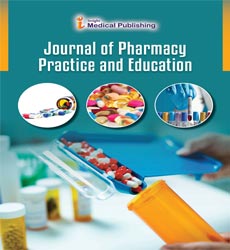Feasibility study of matrix tablet for gastroretention application ives
Abstract
The objective of this study was to formulate and evaluate matrix tablets for controlled delivery of dextromethorphan hydrobromide (DBM) as a model drug. Matrix tablets were prepared by direct compression method using tamarind seed polysaccharide (TSP) as release retardant material and HPMC K15M and K100M as swelling agents. Prepared matrix tablets were characterised by FT-IR and DSC. FT-IR and DSC studies showed no chemical interaction between the drug and polymers. Matrix tablets were optimized on the bases of acceptable tablet properties like hardness, friability, drug content, weight variation, buoyancy percentage, in vitro and in vivo floatation in rabbits. Among all the formulations, F-IV showed 99.2% release at the end of 12 hours. The release data was fitted to various mathematical models such as, Higuchi, Korsmeyer-Peppas, First-order and Zero order to evaluate the release kinetics and mechanism of drug release followed fickian diffusion mechanism. The in vivo floatation study confirmed that floating matrix tablets could prolong the gastric retention time to more than 12 hours. Results of the stability studies showed that there were no significant changes in the drug content and physical appearance.
Open Access Journals
- Aquaculture & Veterinary Science
- Chemistry & Chemical Sciences
- Clinical Sciences
- Engineering
- General Science
- Genetics & Molecular Biology
- Health Care & Nursing
- Immunology & Microbiology
- Materials Science
- Mathematics & Physics
- Medical Sciences
- Neurology & Psychiatry
- Oncology & Cancer Science
- Pharmaceutical Sciences
